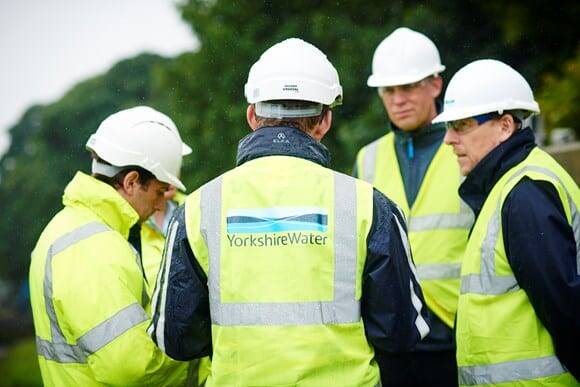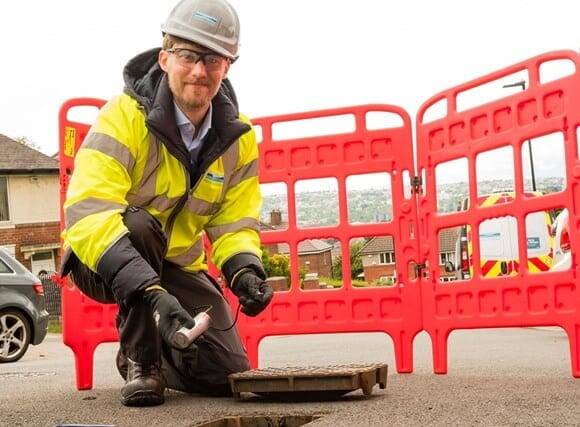You’ve reached your limit!
To continue enjoying Utility Week Innovate, brought to you in association with Utility Week Live or gain unlimited Utility Week site access choose the option that applies to you below:
Register to access Utility Week Innovate
- Get the latest insight on frontline business challenges
- Receive specialist sector newsletters to keep you informed
- Access our Utility Week Innovate content for free
- Join us in bringing collaborative innovation to life at Utility Week Live

Yorkshire Water is spending big to hit ambitious targets across areas such as customer service, leakage, pollution and flooding. Here, enterprise data architect Gary Ashby unpacks the building blocks beneath wholesale business transformation.
Digital transformation is driving and accelerating positive change across many organisations, and Yorkshire Water has put innovation at the heart of an ambitious transformation programme.
 With the better use of data at its core, it will support a smarter network and improved customer operations while delivering the right foundations and capabilities for the future.
With the better use of data at its core, it will support a smarter network and improved customer operations while delivering the right foundations and capabilities for the future.
By 2025, Yorkshire Water aims to provide a 24/7 personalised service to its customers and is investing £325m to reduce leaks by 40%. Additionally, a £350m investment will reduce pollution incidents by more than 50% between 2018 and 2025 and internal sewer flooding by 70%.
To help deliver these goals, a business-wide data transformation programme is underway.
As such, Yorkshire Water is partnering with Leeds-based data consultancy, The Oakland Group, to provide a step-change in data and analytics capabilities over the coming years.
Data is the foundation upon which Yorkshire Water will enable this change because of the incredible value it has to organisations to power better decisions and drive operational performance efficiencies.
The start of the journey
 The team at Yorkshire Water approached these challenges with a number of central aims.
The team at Yorkshire Water approached these challenges with a number of central aims.
Firstly, to drive better customer outcomes within an existing regulatory framework and to create efficiencies. Yorkshire Water has already created a cloud-based data platform to serve as a central hub allowing ever-increasing amounts of data to be processed at speed.
In addition to internal data, the platform can integrate data from many external sources enabling management teams across the business to tackle everything from climate change to maintenance and supply chain issues.
However, in order to drive further innovation and broaden the opportunities that data can provide, Yorkshire Water required an enterprise-wide data strategy encompassing architecture, operating model design, data governance and specialist analytical support.
 While digital-native firms like Netflix or Twitter have a clean slate, the average utility business has systems that date back up to 40 years and don’t easily lend themselves to data-led change. So the ability to blend data in an agile way is essential to the organisation’s outcomes.
While digital-native firms like Netflix or Twitter have a clean slate, the average utility business has systems that date back up to 40 years and don’t easily lend themselves to data-led change. So the ability to blend data in an agile way is essential to the organisation’s outcomes.
The move to cloud and a new data platform, combined with the partnership with data experts at Oakland, are accelerating this transformation.
While the organisation is already benefitting, the architecture and data science teams are working in partnership with Oakland to develop the future operating model designs, processes, and architectural decisions required to ensure lasting, sustainable, change.
Enabling better decision making
These activities are designed to support various use cases, from corporate reporting to analytics and asset monitoring.
- Driving innovation. Designs for a modern cloud telemetry platform have been tested and will handle data from more than two million smart devices sending data in real-time. The cloud telemetry platform will also provide the foundation for a number of operational technology outcomes.
- Building in quality. There is a constant focus on ensuring the quality of data in the system. Oakland is working with Yorkshire’s head of data governance to determine and implement the governance framework and tooling to ensure improvements in data quality are achieved and maintained.
- Better outcomes. The data strategy that Oakland is developing with Yorkshire ultimately seeks to enable people to use data for better decision making and effecting positive change and requires a combination of people, process and technology change – the technology on its own is the not the silver bullet.
Stimulating wider variables
The programme is already delivering tangible benefits across the business. For example, it has developed and deployed software that enables a more affordable and streamlined process for bio-resources management. The new bio-resource model is more affordable, simpler to use and easier to understand for operational managers.
 The solution also reduced costs around the bio-resource management process. The data was then used to simulate an even wider range of variables over a 40-year timeframe. By determining potential scenarios for the future, the company sought to identify longer-term opportunities for a more efficient and effective service.
The solution also reduced costs around the bio-resource management process. The data was then used to simulate an even wider range of variables over a 40-year timeframe. By determining potential scenarios for the future, the company sought to identify longer-term opportunities for a more efficient and effective service.
Finally, it’s about creating a foundation for the future. Over the next five to ten years, Yorkshire Water will be able to leverage best practices and technology from other sectors to meet the challenges of tomorrow.
Utility Week Innovate, in collaboration with Utility Week Live aims to discover and promote innovative approaches to tackle front line business challenges through case studies, technical/project studies, networking, and live content. Be recognised as a key solution provider and meet your target audience face-to-face at UWL23. Find out more about exhibiting
Please login or Register to leave a comment.